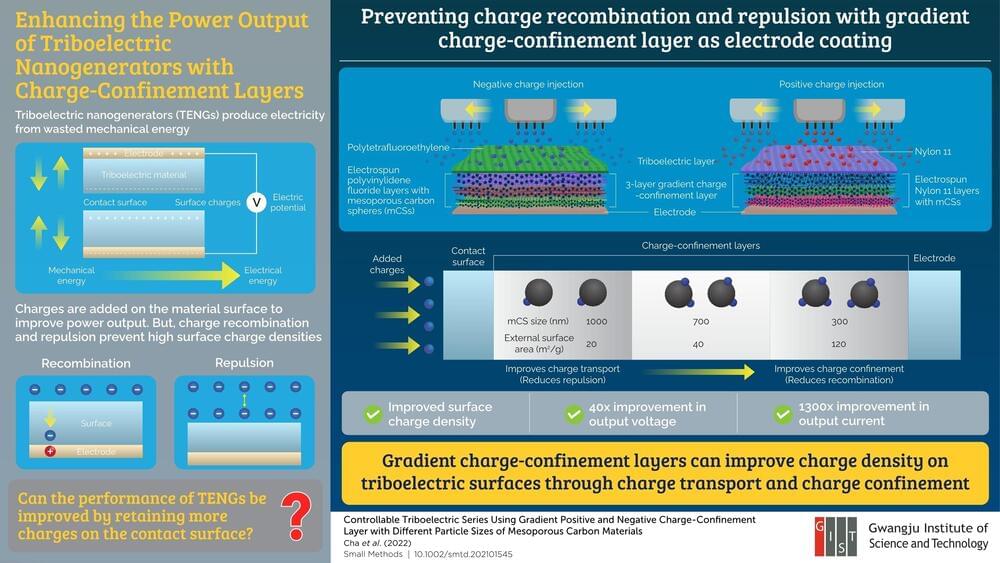Most of us have felt the shock from static electricity by touching a metallic object after putting on a sweater or walking across a carpet. This occurs as a result of charge build-up whenever two dissimilar materials (such as our body and the fabric) come in contact with each other.
In 2012, scientists from the U.S. and China used this phenomenon, known as “triboelectric effect,” to build a triboelectric nanogenerator (TENG) that converts unused mechanical energy into useful electrical energy. Their device consisted of two triboelectric polymer films with metallic electrodes, which, when brought together and separated, resulted in charge separation and the development of an electric voltage sufficient to power small electronic devices.
Viewed as potential sustainable energy harvesters, efforts have been made to enhance the power output of TENGs by injecting charges to the surface of triboelectric films. However, charge recombination in the electrode and charge repulsion on the surface of the material prevents them from achieving high surface charge densities.
